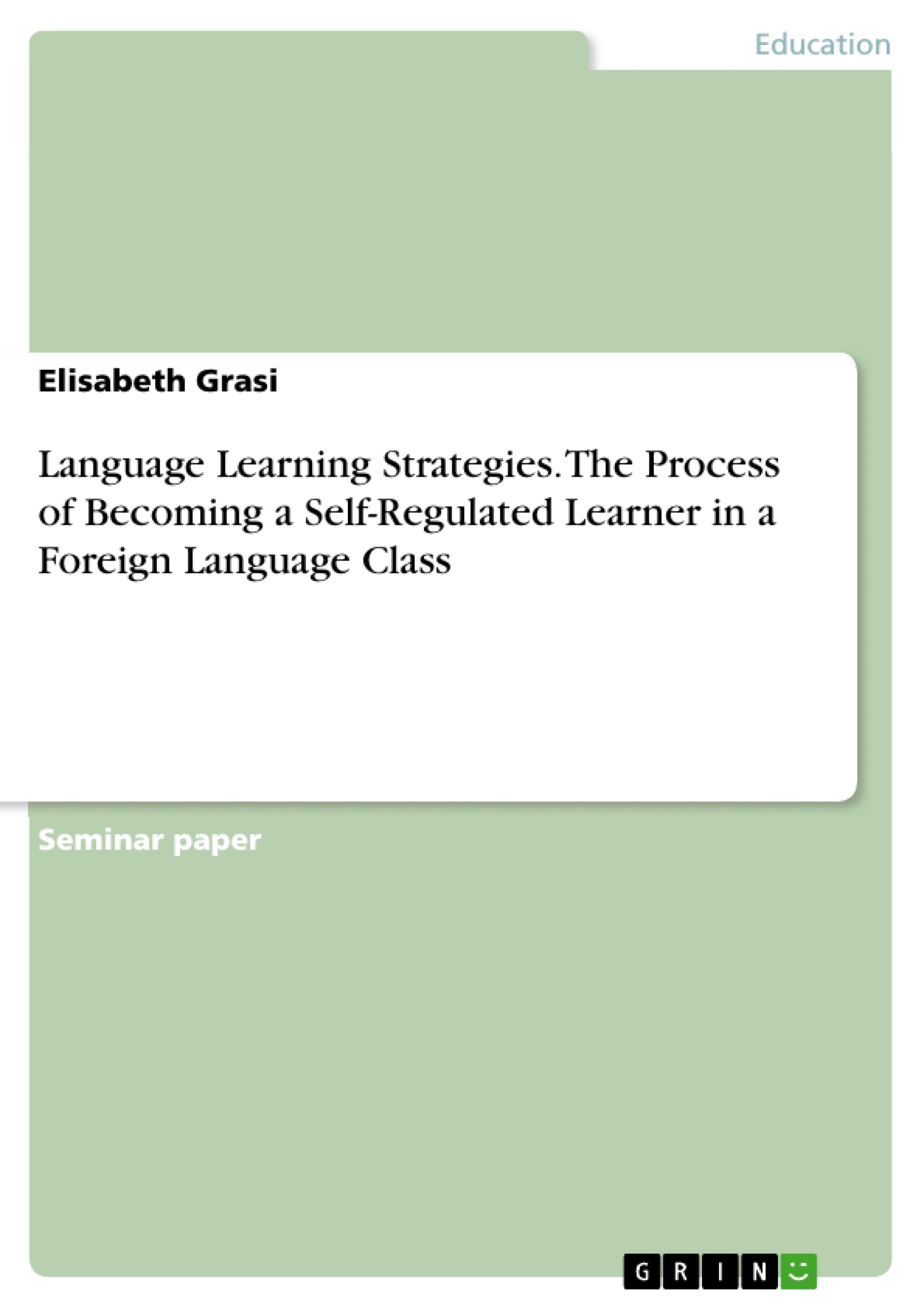The paper’s primary concern is to outline strategies which teachers could use in order to support students in becoming self-regulated by using language learning strategies.
Maria Montessori was one of the first pedagogues who emphasized independence, a degree of student autonomy and learning strategies that highlight learning through action rather than lecture. Children have been seen as naturally eager for knowledge. Thus, children are capable of initiating learning in a supportive, thoughtfully prepared learning environment.
Based on pedagogical observations, it was discovered that children who were free to choose and act without restrictions within an environment prepared according to Montessori’s model would act spontaneously for optimal development. Unfortunately, it is frequently observable that modern phenomena such as portable phones, computers and television are a constant distraction, even for young children, and consequently tend to impede the students learning of self-regulation.
Inhaltsverzeichnis (Table of Contents)
- The process of becoming a self-regulated learner in a foreign language class by supportive language learning strategies
- Becoming a self-regulated learner in a foreign language class
- Learning as formal discipline
- Metacognition and Social Cognition
- The self-regulation process
- Three cyclical phases of self-regulation
- Forethought Phase
- Performance Phase
- Self-Reflection Phase
- Self-regulation in foreign language learning
- Teachers' perspective on self-regulated learning
- Learning strategies for self-regulated language learners
- Strategy Inventory for Language Learning (SILL)
- Conclusion
Zielsetzung und Themenschwerpunkte (Objectives and Key Themes)
This seminar paper explores the concept of self-regulated learning in the context of foreign language acquisition. It aims to outline strategies teachers can use to support students in becoming self-regulated learners by utilizing language learning strategies.
- The importance of self-regulated learning for student success
- The role of teachers in fostering self-regulated learning
- Specific language learning strategies that promote self-regulation
- The use of assessment tools to evaluate learning strategies
- The impact of self-regulation on language learning outcomes
Zusammenfassung der Kapitel (Chapter Summaries)
- The paper begins by introducing the concept of self-regulated learning and its historical development, highlighting the shift from a traditional transmission of knowledge to a more student-centered approach.
- It then delves into the three cyclical phases of self-regulation as proposed by Zimmermann: forethought, performance, and self-reflection. Each phase is further divided into sub-processes that illustrate the steps involved in becoming a self-regulated learner.
- The paper explores the application of self-regulation in foreign language learning, emphasizing the importance of motivation, persistence, and the opportunity for practice both inside and outside the classroom.
- It examines teachers' perspectives on self-regulated learning through an interview study, revealing that while many teachers recognize the benefits of SRL, they may not have sufficient time or resources to actively incorporate SRL strategies into their instruction.
- The paper concludes by discussing various learning strategies that support learners in becoming self-regulated and teachers in promoting SRL in a language learning environment. It highlights the use of specific assessment techniques and the Strategy Inventory for Language Learning (SILL) as valuable tools for evaluating and promoting effective learning strategies.
Schlüsselwörter (Keywords)
The key terms and concepts discussed in this paper include self-regulated learning, language learning strategies, foreign language acquisition, metacognition, social cognition, teachers' role, assessment tools, and the Strategy Inventory for Language Learning (SILL).
Frequently Asked Questions
What is a self-regulated learner in language learning?
A self-regulated learner is a student who takes control of their own learning process, using strategies to monitor, motivate, and reflect on their progress.
What are the three phases of self-regulation?
According to Zimmermann, the phases are: Forethought (planning), Performance (action), and Self-Reflection (evaluation).
How can teachers support self-regulated learning (SRL)?
Teachers can foster SRL by teaching specific learning strategies, providing a supportive environment, and encouraging students to set their own goals.
What is the Strategy Inventory for Language Learning (SILL)?
The SILL is an assessment tool used to identify the specific learning strategies students use and to help them improve their language acquisition efficiency.
Why do modern distractions like phones impede self-regulation?
Constant distractions interfere with concentration and the ability to focus on long-term learning goals, making it harder for students to develop self-regulation skills.
How did Maria Montessori influence the concept of self-regulation?
Montessori emphasized independence, student autonomy, and learning through action, which are core principles of modern self-regulated learning.
- Arbeit zitieren
- Elisabeth Grasi (Autor:in), 2019, Language Learning Strategies. The Process of Becoming a Self-Regulated Learner in a Foreign Language Class, München, GRIN Verlag, https://www.grin.com/document/924367



